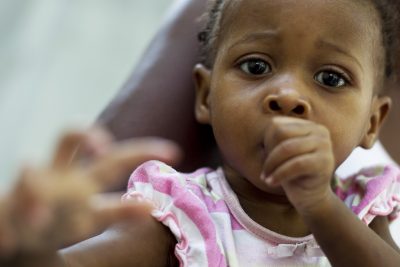Boston University professionals suggest that having conversations about differences early on in childhood — teaching children to recognize, celebrate and embrace them — could create a more equitable future.

Wheelock College of Education and Human Development hosted a panel Wednesday titled “Talking with Young Children and Families about Difference and Equity” to discuss how young children can benefit from conversations about different races, gender identities and expressions, and sexual orientations, as well as about bias and stereotypes.
The panel focused on how to address the often-regarded “difficult questions” by using “child-friendly language” to teach children 8 years old and younger about complex social topics concerning identity, said panelist Eleonora Villegas-Reimers, Wheelock’s department chair for teaching and learning and a clinical professor in the college.
To approach such issues, Villegas-Reimers said educators need to be more transparent when speaking with children.
“We teach children the very complicated names of dinosaurs, and nobody questions that,” she said in an interview. “Children need to hear the actual name and language of different things, so they need to hear the word ‘discrimination.’”
One of the first issues discussed in the panel was gender because often young children can have “very stereotypical views” on the topic, as well as on race, Villegas-Reimers said.
“None of these stereotypical views are innate in any way, so they have gotten the message somewhere,” she said, “and it could be in the media, it could be among friends, it could be even things that we’re not necessarily aware of that they are picking up.”
Christina Dobbs, an assistant professor in English education at Wheelock and the event moderator, shared a story about her niece holding stereotypes about gender at age 3.
“We were playing with these two dolls that I had as a child, and I was saying to her that their names were Thomas and Eugene, and she said, ‘Oh no, that’s wrong.’” Dobbs said at the panel. “She had this idea that pink bunny rabbits can’t be boys.”
Panelist Ellie Friedland, a clinical associate professor at Wheelock, said in an interview the environment children grow up in is integral in their development. She said some adults underestimate how observant young children are, which is why conversations about different physical appearances should begin early.
“Kids are aware of differences, they’re interested in them, they’re not negative about those differences until they’re taught to be negative,” she said. “But they do see them and they are interested, so there’s every reason to begin those conversations very young.”
Villegas-Reimers said it is important to normalize discussions of gender and race with children because they already note group power dynamics and how different situations are more or less “fair” — an expression that could serve as a learning moment when children use it to defend themselves against perceived threats, such as when an adult tells them to take turns using a toy.
It is also important because children are constantly absorbing information from different media sources and not educating them about differences to combat these stereotypes is harming their development as informed individuals, Villegas-Reimers said.
“[If] they see that the girls wear pink and the boys don’t, they conclude what makes a girl a girl is wearing pink,” she said. “The problem is that once they have those theories, unless somebody has explained that the theory is wrong and given the evidence of why it’s wrong, the theory continues to grow and become part of the way that the person thinks about.”
Introducing equity early, instead of avoiding it until adulthood, would be a positive intervention, she added.
“What we’re trying to do very late in life is to correct the mistakes of the ideas that they form early on,” she said. “If we attack the problem from the beginning, we won’t have anything to correct.”
The purpose of having such conversations is to have children see, celebrate and learn about differences, Villegas-Reimers said, and embrace them. If this happens, she said this young generation could be much better equipped to tackle today’s challenges later on.
Friedland also said differences aren’t initially perceived negatively by children: It’s when they’re taught to be negative that they begin to see certain characteristics differently or experience discrimination themselves.
Other than having conversations with children, Villegas-Reimers said adults need to model appropriate behavior for children.
“What we need to do as a society is to think about if we are really going to be creating or making a much, much better society than what we have today,” Villegas-Reimers said, “it really has to begin with us.”














